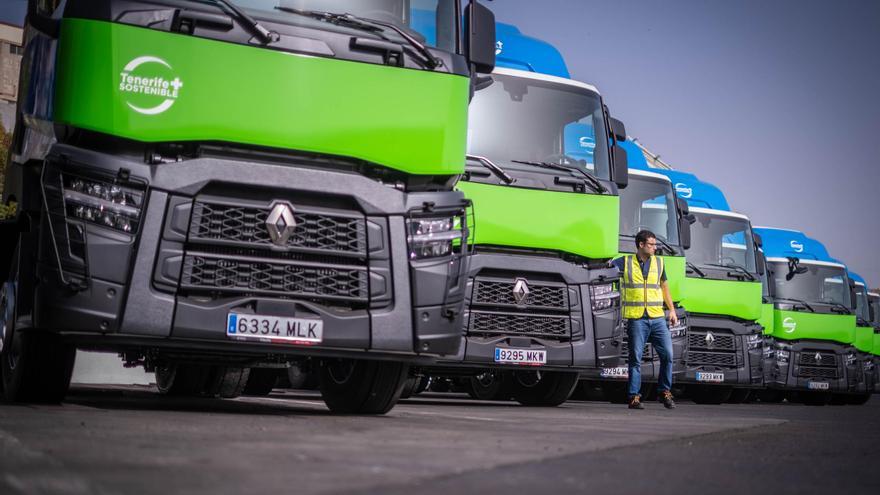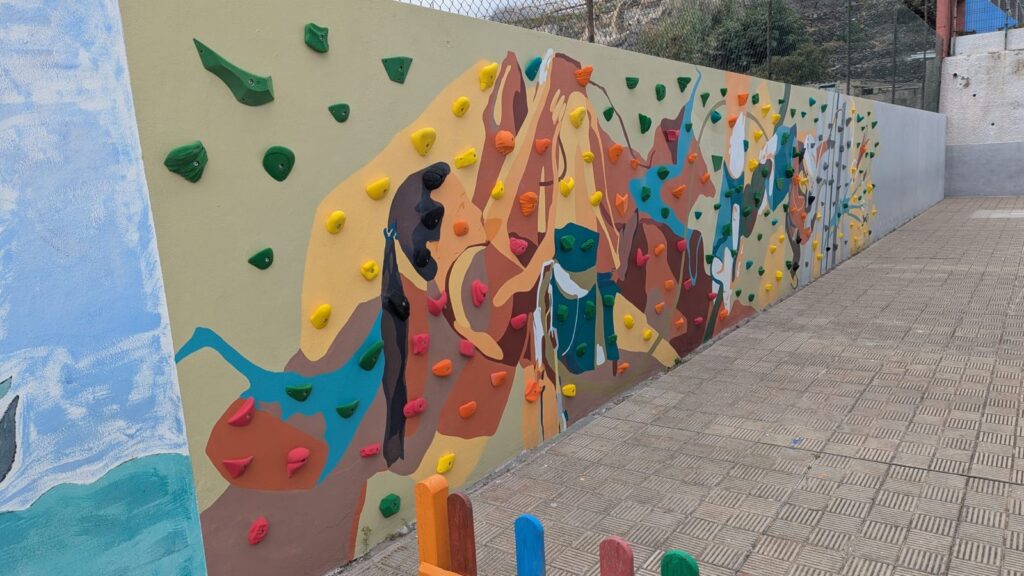
An investment of nine million euros to conduct research and drive innovation on the Island, utilizing the talent of University of La Laguna (ULL) and other private institutions, with the aim of “transforming the trajectory in the waste management.” Emphasizing initiatives in recycling and circular economy. This forms the foundation of Tenerife Council’s commitment to embark on what they termed as a “new phase.” The initiative kicked off with the unveiling in Polígono de La Campana (El Rosario) of fifteen new vehicles, comprising ten trucks and five containers, to enhance the handling and transportation of waste across the island. These are part of the contract granted to the UTE Nivaria, formed by Urbaser and FCC Medio Ambiente. Additionally, the insular Corporation and Nivaria have established a governing committee responsible for determining actions in IDI (Research, Development and Innovation) projects. The event was graced by the President of the Cabildo, Rosa Davila; the Minister of Natural Environment, Sustainability and Emergencies, Blanca Pérez; the insular director of Waste, Alejandro Molowny, and Rafael Guinea, representative of the UTE.
A new era for waste management
Dávila emphasized: “This marks a significant turning point in waste management on the Island.” She added: “Since assuming office, I instructed the focus on this contract, which amounts to approximately 397 million euros for the next 15 years – the largest in the institution’s history – and which had essentially come to a halt.” The President of the Cabildo expressed gratitude towards the Nivaria representatives for “the efforts made in the past seven months to redirect the situation.” She underscored the significance of the new vehicles and the governing committee’s approval of projects “crucial for the Island and its universities, amounting to nine million euros.” Dávila stressed that “these are associated with research, development, and innovation applied in this field, which will also be spearheaded by the Technological Institute of Renewable Energies (ITER).” The governing council will convene every six months and envisions a total of 20 projects in Tenerife. This is not only to enhance waste management but also to elevate environmental standards, “which is a top priority for us,” summarized Dávila.
Commitment to making a difference
On his part, Rafael Guinea, speaking on behalf of UTE Nivaria, stated: “We are delighted to begin demonstrating tangible progress.” He acknowledged the “challenging beginnings for various reasons, but we remain committed to executing the contract awarded by the Cabildo.” He elaborated on their vision of establishing waste management as an exemplary model at both island and global levels in circular economy. He emphasized: “That is the commitment.” Guinea concluded: “We aspire to create a developmental framework in Tenerife that alters how citizens perceive waste and commence regarding them as valuable resources. We stand alongside the Cabildo to accomplish this.”
Nine innovative projects
The approved projects are linked to enhancing the provision of public service for waste management, coupled with the added value of retaining the research within Canary Islands. The goal is to position Tenerife as a model for waste management and as an outermost region of the European Union. A model of circular economy and environmental sustainability. Among the nine projects are the development of a biofertilizer from the organic fraction of urban solid waste; the valorization of polyurethane foams from the comfort sector (mattresses) for value-added applications, or hydrogen production technologies from biogas. Advanced pretreatment systems, researching greenhouse gas emissions using drones, exploring innovative solar panels as landfill coverage, utilizing zeolites (hydratable mineral) to deactivate the concentrates of the water treatment process that passes through the waste, removing contaminants, and an intelligent management system for selective collection of hotel waste.














